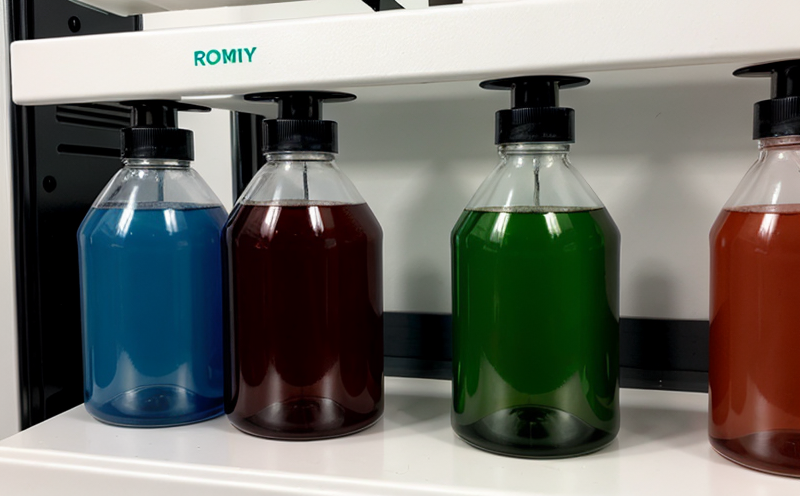GB T 1040 Tensile Reactivity Testing of Plastics
The GB/T 1040 standard is a crucial part of quality assurance protocols in the plastics industry. This test method evaluates the tensile reactivity, or strength-to-break properties, of plastic materials under defined conditions. It provides essential data for ensuring that products meet specified mechanical performance requirements and can withstand various environmental stresses.
This testing procedure is widely used to assess the integrity and durability of polymer-based components in diverse applications ranging from automotive parts to medical devices. By accurately measuring tensile reactivity, manufacturers gain valuable insights into their materials' behavior under stress, which helps optimize formulation processes and enhance product reliability.
GB/T 1040 testing ensures that all batches of plastic products comply with set standards, thereby safeguarding consumer safety and promoting industry compliance. The test results play a pivotal role in validating the quality control measures implemented during manufacturing processes.
The tensile reactivity test involves subjecting specimens cut from raw materials or finished parts to controlled stretching until they reach their breaking point. This process not only determines the maximum force before failure but also provides information about elongation at break, modulus of elasticity, and other crucial mechanical properties.
For accurate results, it is important that both manufacturers and laboratories adhere strictly to the specified parameters outlined in GB/T 1040. These include specimen dimensions, environmental conditions during testing, and precise calibration of equipment used for measurement.
The reliability of these tests depends heavily on consistent application across all stages—from raw material selection through final product inspection. Proper training for personnel involved in conducting such tests ensures adherence to standards and minimizes variations that could affect outcome accuracy.
| Parameter | Description |
|---|---|
| Specimen Dimensions | Typically 100 mm gauge length by 10 ± 0.5 mm wide cross-section. |
| Test Speed | A speed that allows for accurate measurement within the specified range. |
| Environmental Conditions | Standard room temperature and humidity levels must be maintained throughout testing. |
| Equipment Calibration | Ensures consistent results from one test run to another. |
Scope and Methodology
The scope of GB/T 1040 Tensile Reactivity Testing encompasses the mechanical evaluation of plastic materials, focusing on their ability to withstand tensile forces until failure. This method is essential for ensuring that plastics used in critical applications maintain appropriate strength-to-weight ratios.
According to GB/T 1040, specimens are prepared by cutting them into standard dimensions and shapes before being subjected to controlled stretching until they reach their breaking point. The test setup includes a tensile testing machine capable of applying force at specified rates while monitoring displacement continuously.
- Test Specimens: Cut from raw materials or manufactured parts, typically having a gauge length of 100 mm and cross-sectional dimensions of 10 ± 0.5 mm.
- Testing Conditions: Conducted at ambient temperature (23°C ± 2°C) with relative humidity controlled between 45% and 55%. Specimens must be conditioned under these conditions for at least 2 hours prior to testing.
The methodology involves attaching the prepared specimens onto the grips of a tensile testing machine. The machine then applies force incrementally until the sample breaks, recording both peak load and extension data throughout the process. From this information, various mechanical properties like tensile strength, modulus of elasticity, elongation at break, and yield strength are calculated.
Quality and Reliability Assurance
Ensuring consistent quality in GB/T 1040 tests requires strict adherence to standard procedures. Laboratories must maintain rigorous quality controls throughout every stage of specimen preparation, testing, and data analysis.
- Calibration: Regular calibration of all instruments involved ensures accurate measurements.
- Data Analysis: Comprehensive analysis of test results helps identify any discrepancies or trends that may indicate issues with material consistency.
Customer Impact and Satisfaction
Accurate GB/T 1040 testing significantly impacts customer satisfaction by delivering reliable data that informs product design decisions. For quality managers and compliance officers, these tests provide assurance about the mechanical integrity of plastic components.
- Enhanced Product Reliability: Reliable test results contribute to longer-lasting products, reducing warranty claims and improving brand reputation.
- Informed Decision-Making: Accurate data enables better-informed choices regarding material selection and process optimization.





